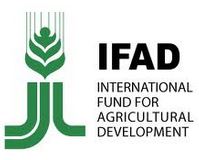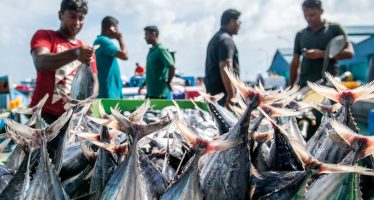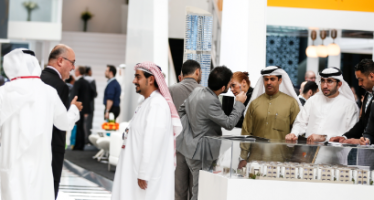Small Egypt Farmers Catch the Eye of Agribusiness: IFAD Finds Key to Success
 Twenty-odd years ago, groups of dispossessed farmers and unemployed youth were resettled on smallholdings in Upper Egypt. Authorities told the new arrivals to go till the desert soil. Plots – sandboxes really – of one to two hectares were duly meted out, the project was declared a resounding success and everybody left the scene, including most of the newly settled families.
Twenty-odd years ago, groups of dispossessed farmers and unemployed youth were resettled on smallholdings in Upper Egypt. Authorities told the new arrivals to go till the desert soil. Plots – sandboxes really – of one to two hectares were duly meted out, the project was declared a resounding success and everybody left the scene, including most of the newly settled families.
At the time, Upper Egypt was neither a welcoming nor a promising place. Historically the least developed region of the country, Upper Egypt used to be a place from which people left. Not any longer: Labourers from elsewhere in Egypt are now flocking to the area between Entelak and Tiba to work the fields carved out from the desert. A migratory trickle is on its way to becoming a modest flood.
Today, West Noubaria produces significant crops of grains, nuts, fruits and vegetables destined not just for the domestic market but for export as well. Farmers report reaping well over four tonnes of peanuts per harvest from a single hectare of what used to be desert sand. In four years’ time, yields of high-value produce such as oranges, pomegranates and garlic have increased fivefold.
“Over the course of a decade, the project lifted over 27,000 families out of poverty.”
Former subsistence farmers are making real money, and spending it: A large new town – replete with markets, shops and restaurants – is being erected next to the Al Yashaa village. The district now boasts good roads, a dependable power grid, clean piped water and a much-improved network of roads that allow cash crops to reach packing plants and markets within hours of being harvested.
Among development projects, West Noubaria is a pearl. Budgeted at about $55 million and slated to be completed this year, it is run by the United Nations’ International Fund for Agricultural Development (IFAD). Major financing came by the way of an Italian-backed debt-swap valued at $32 million. IFAD contributed with $18.5 million. Over the course of a decade, the project lifted over 27,000 families out of poverty.
More than a drop on the plate, the West Noubaria Rural Development Project showed a way forward: Its comprehensive and inclusive approach did not just teach farmers how to work the barren land, but also featured a complete economic and social infrastructure package. Schools, training institutes, health clinics, civic centres and public housing projects were built, transforming West Noubaria from a region with a mostly transient population into a true community with a clear sense of purpose.
Abdul Rahman, an accountant-by-trade from Lower Egypt, first came to West Noubaria in the early 1990s, the proud owner of a smallholding he had acquired through a government-sponsored loan. He and his wife did try to work the desert floor but failed miserably and quickly moved back north. After word of the IFAD project reached him, Mr Rahman decided to try again. This time, his efforts met with more success: “I was provided with training and technical support. Things went a lot smoother the second time around and now my land is fertile and we are happy.”
A unique aspect of the West Nourabia project is its successful attempt to link small farmers, such as Mr Rahman, to big business. In the past, processing plants and trading companies shied away from small farmers and conducted their business almost exclusively with commercial farms.
By organizing and uniting smallholders into marketing associations, the IFAD project managed to entice larger companies into dealing with the West Nourabia producers. The marketing associations’ members receive extensive training in best agricultural practices, organic farming, food technology and basic crop processing. Members also learn about the importance of quality control; essential for gaining access to the coveted long-term supply contracts available from food processors and exporters.
“By organizing producers into marketing associations and training them in market requirements, we have enabled small farmers to establish successful business linkages with more than 50 private companies involved either in processing or trading and exporting,” says Abdelhamid Abdouli, IFAD Country Programme Manager for Egypt.
Mr Abdouli remembers that early on, few in West Nourabia thought it possible to farm the desert: “People just did not understand that it would be possible to grown anything on this fragile, sandy soil. It took a lot of convincing, but now our settlement rate is 98%, up from 25% at the start of the project.”
 IFAD has recently announced the start of a new development project in Upper Egypt, the Promotion of Rural Incomes through Market Enhancement (PRIME) programme. Notwithstanding its rather awkward name, this project aims to disseminate the approach taken in West Nourabia to a much wider segment of the population. By helping smallholders forge enduring links with agribusiness, IFAD hopes to offer some measure of succour to the vast numbers of Egyptian subsistence farmers who mostly toil against the odds.
IFAD has recently announced the start of a new development project in Upper Egypt, the Promotion of Rural Incomes through Market Enhancement (PRIME) programme. Notwithstanding its rather awkward name, this project aims to disseminate the approach taken in West Nourabia to a much wider segment of the population. By helping smallholders forge enduring links with agribusiness, IFAD hopes to offer some measure of succour to the vast numbers of Egyptian subsistence farmers who mostly toil against the odds.
You may have an interest in also reading…
Asian Development Bank: Towards a Blue Deal to Restore the World’s Oceans
Investments in recovering and maintaining a functioning marine ecosystem can form the foundation of a sustainable “blue economy.” Marine ecosystems
Smart City Prince: A Prince with a Mission, a Vision
For anyone familiar with the dashing Crown Prince of Dubai, it would have come as no surprise to find him
Cityscape Launches Inaugural Event in Kuwait
Region’s Largest Real Estate Event Shines Spotlight on Kuwait Real Estate Market Cityscape Kuwait, the premier international real estate investment


















































































